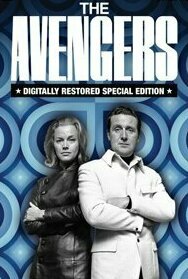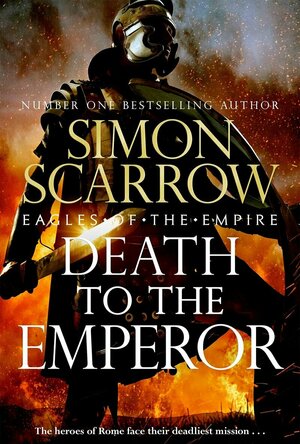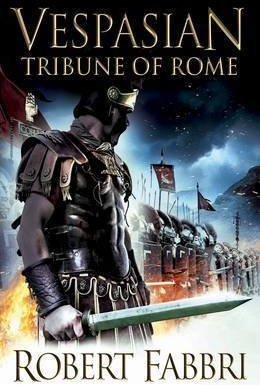David McK (3695 KP) rated The Eagle in the Sand (Eagle, #7) in Books
Jan 30, 2019
The events of this one, instead, take place in Judea, mainly centring around a small fort on the outpost of the Roman Empire. While its not essential to have read the earlier novels, it may help, with the occassional passing reference to earlier events.
I also have to say that it could be easy to take offence at the way certain famous historical personages - one in particular - are portrayed, but at the end of the day, this is only a work of fiction and doesn't purport to be anything but.
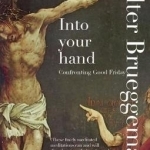
Into Your Hand: Confronting Good Friday
Walter Brueggemann and Richard Rohr
Book
This set of seven reflections follows the traditional church sequence of "The Seven Last Words of...
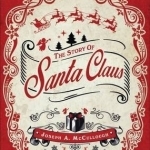
The Story of Santa Claus
Peter Dennis and Joseph A. McCullough
Book
The perfect Christmas gift, this beautiful book explains how the bearded, red clad, big bellied,...
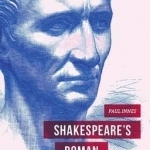
Shakespeare's Roman Plays
Book
Rome was a recurring theme throughout Shakespeare's career, from the celebrated Julius Caesar, to...
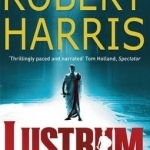
Lustrum
Book
Rome, 63 BC. In a city on the brink of acquiring a vast empire, seven men are struggling for power....
Awix (3310 KP) rated The Avengers - Season 3 in TV
Jul 15, 2020
It's still a slightly mixed bag but the two stars are endlessly watchable and the chemistry between them is great. The best episodes bear comparison to ones from the better-known filmed seasons that made up the rest of the series' run. Maybe not quite up to the standard of those later shows, but this is the foundation they were built on, and entertaining in its own right.
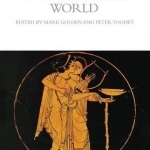
A Cultural History of Sexuality in the Classical World
Book
Though many of the sexual practices of the Ancient Greeks and Romans are known and accepted today,...
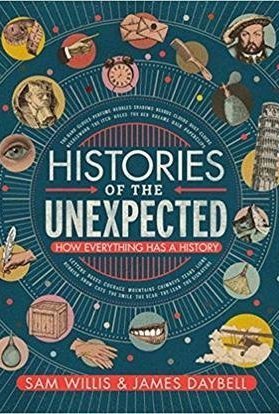
Histories of the Unexpected
Book
In this fascinating and original new book, Sam Willis and James Daybell lead us on a journey of...
David McK (3695 KP) rated Death to the Emperor (Macro and Cato #21) in Books
Apr 10, 2023
I wondered into a local branch of Eason's, and saw Under the Eagle on offer, sold for an introductory price (which I can't even remember), and with a blurb that sounded interesting. That, and a quote from the king of historical action-adventure fiction Bernard Cornwell that 'I really don't need this kind of competition ... a great read'.
Jump forward just over 20 years, and we're now onto book #20 in the series, and back in the Roman province of Brittania after the intervening books have had us all over the Roman Empire.
The series has also lost the 'Eagle' that was always included somewhere in the earlier titles (Under the Eagle, The Eagle's Conquest, The Eagle and the Wolves etc), with that word last used in the title in entry # 7 (The Eagle in the Sand).
That's not all that has changed: Cato is no longer the scared young man he had been in the first entries; Macro no longer the seasoned Centurion. Now, Macro is retired from active service whilst Cato - who now has a family of his own - has risen in rank above that that Macro ever reached but is still firm friends with the latter.
We've now also reached a pivotal moment in Roman Britain history, with the Boudicean revolt just about to kick off (as it does here) and as the Romans finally capture and raze the Druid stronghold of Mona.
Those two events form the backbone of this novel, with Cato involved in the attack on Mona whilst Macro is charged with the defence of Camulodunum (Colchester) and in charge of the Roman Reserves there whilst the main army is away on campaign, just after the Governor of Britain has further alienated their Icenian allies.
As with all of the Simon Scarrow books I've read, the history is worn lightly enough to make an enjoyable read: this is not a dry, stuffy retelling of events but rather uses the real historical events as the backbone for the story being built around it.
This, I have to say, is also the first in the series that I can remember ending in a definite cliffhanger ...
(I might have to go back and re-read the previous now)
David McK (3695 KP) rated Tribune of Rome in Books
Jan 30, 2019
... you get the picture.
To that list, we can now also add Robert Fabbri with his planned 'Vespasian' series of books, of which this is the first. In the interest of full disclosure, I'm also going to state that (from the above list of authors) I've read at least one book in their respective series. Of those all - and, including, now, this book - I have to say, I've found Scarrow's novels to be the most entertaining.
As a novel, I found this one could be split into three distinct sections: the beginning was set during Vespasians early years in the Roman country-side and mainly concerning the relationship between him and his brother, before the setting moves to Rome proper when the two brothers get embroiled in Roman politics, and then (in the latter half of the book), following Vespasians early military career. It was probably this latter aspect of the book that is the most enjoyable, even if it does still suffer from seemingly stilted conversations that are used to move the plot along - that, and some 'Oh, come on! As if ...' moments (one in particular!).
While I read some more of this series? Possibly, but also I'm not going to be going out of my way to look for them.

